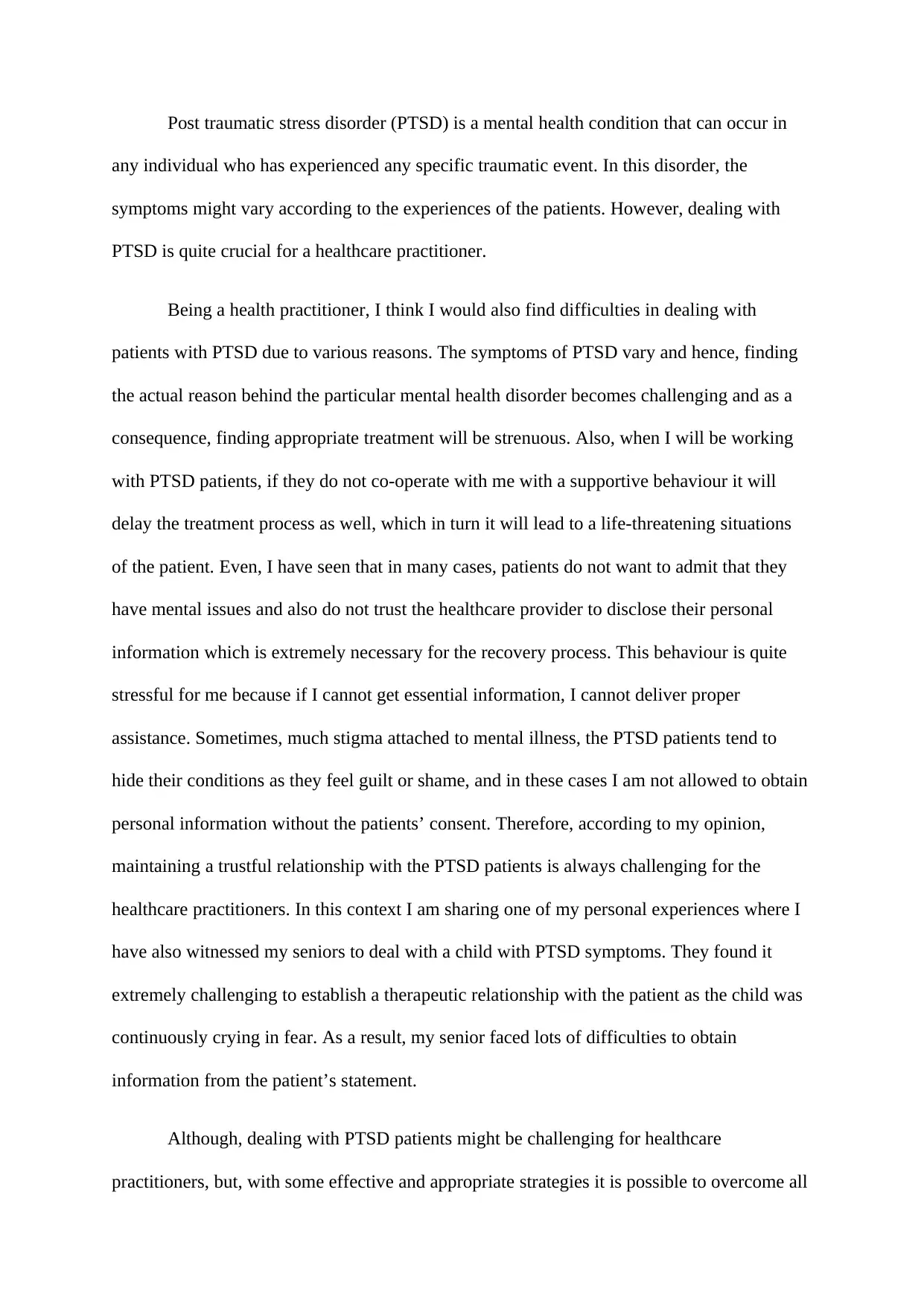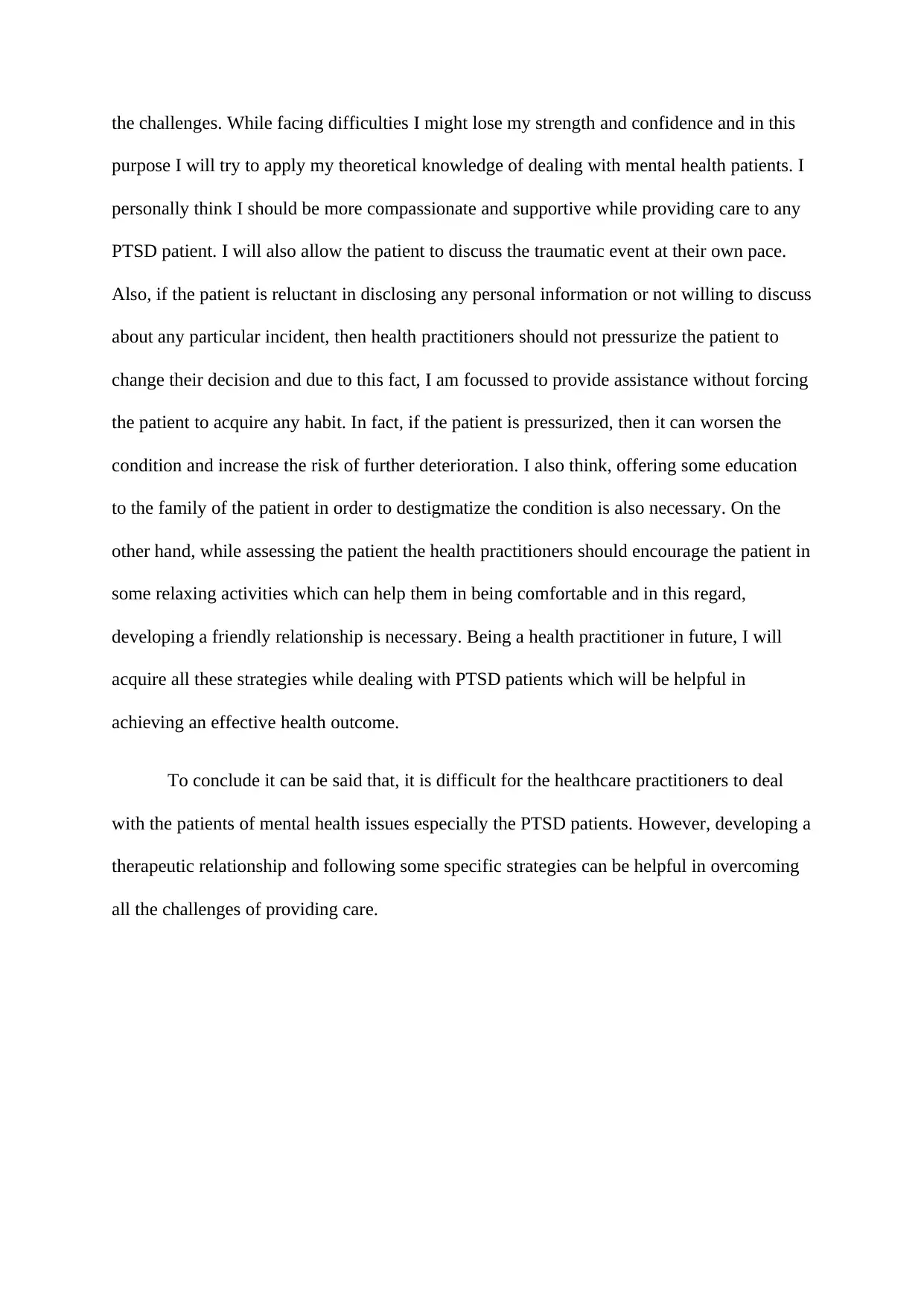Reflective Report: Challenges in Dealing with PTSD Patients
VerifiedAdded on 2022/10/17
|3
|681
|465
Report
AI Summary
This reflective report examines the challenges a healthcare practitioner might face when dealing with patients suffering from Post-Traumatic Stress Disorder (PTSD). The author identifies potential difficulties, such as the varied and often hidden symptoms of PTSD, which can complicate diagnosis and treatment. Challenges in building trust and obtaining necessary personal information from patients are also discussed, along with the impact of stigma surrounding mental illness. The author shares a personal experience and reflects on strategies to overcome these hurdles, including compassion, allowing patients to set their own pace, offering family education, and encouraging relaxing activities. The report concludes by emphasizing the importance of developing a therapeutic relationship and implementing specific strategies to improve healthcare outcomes for PTSD patients.
1 out of 3








![[object Object]](/_next/static/media/star-bottom.7253800d.svg)